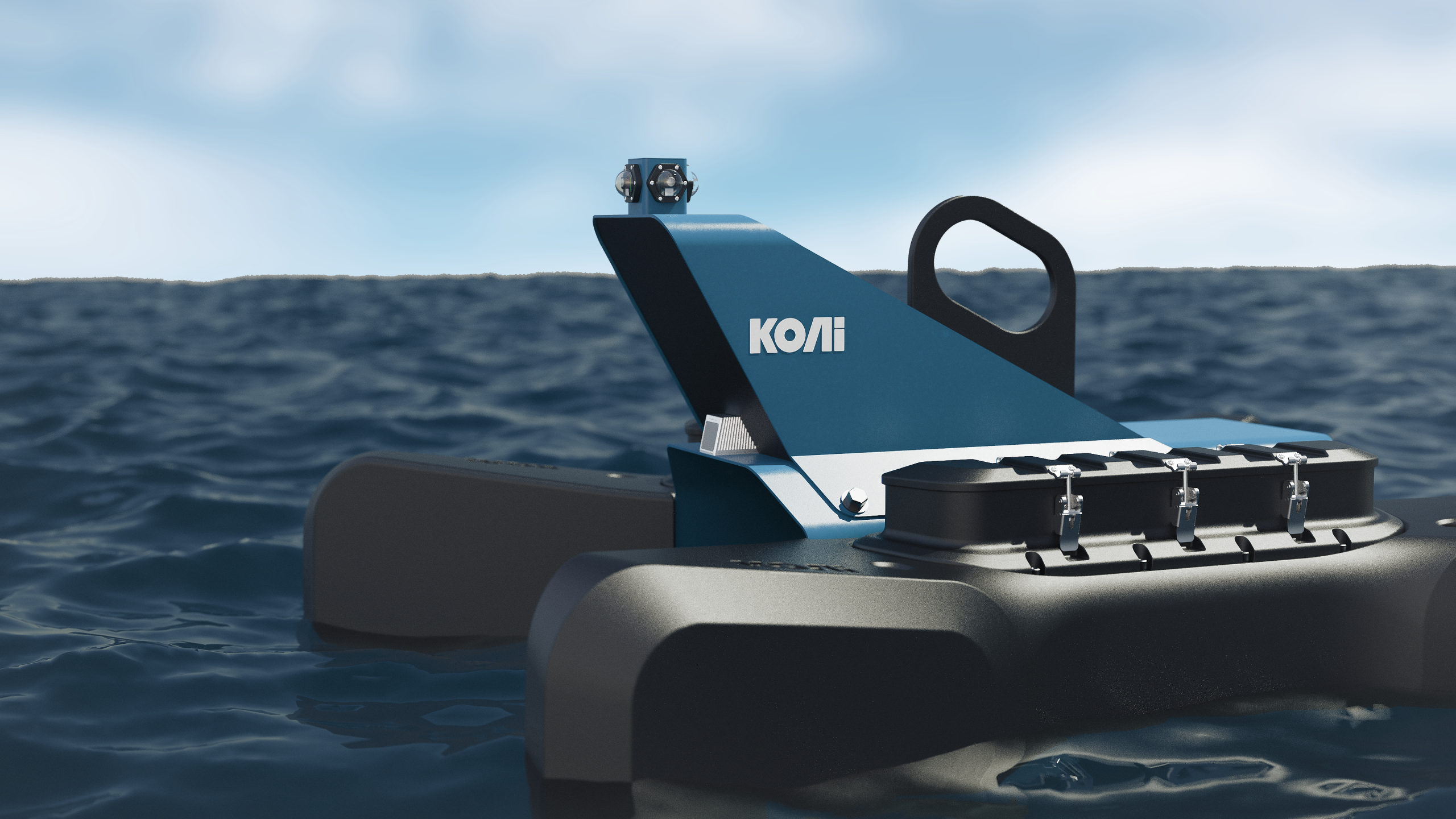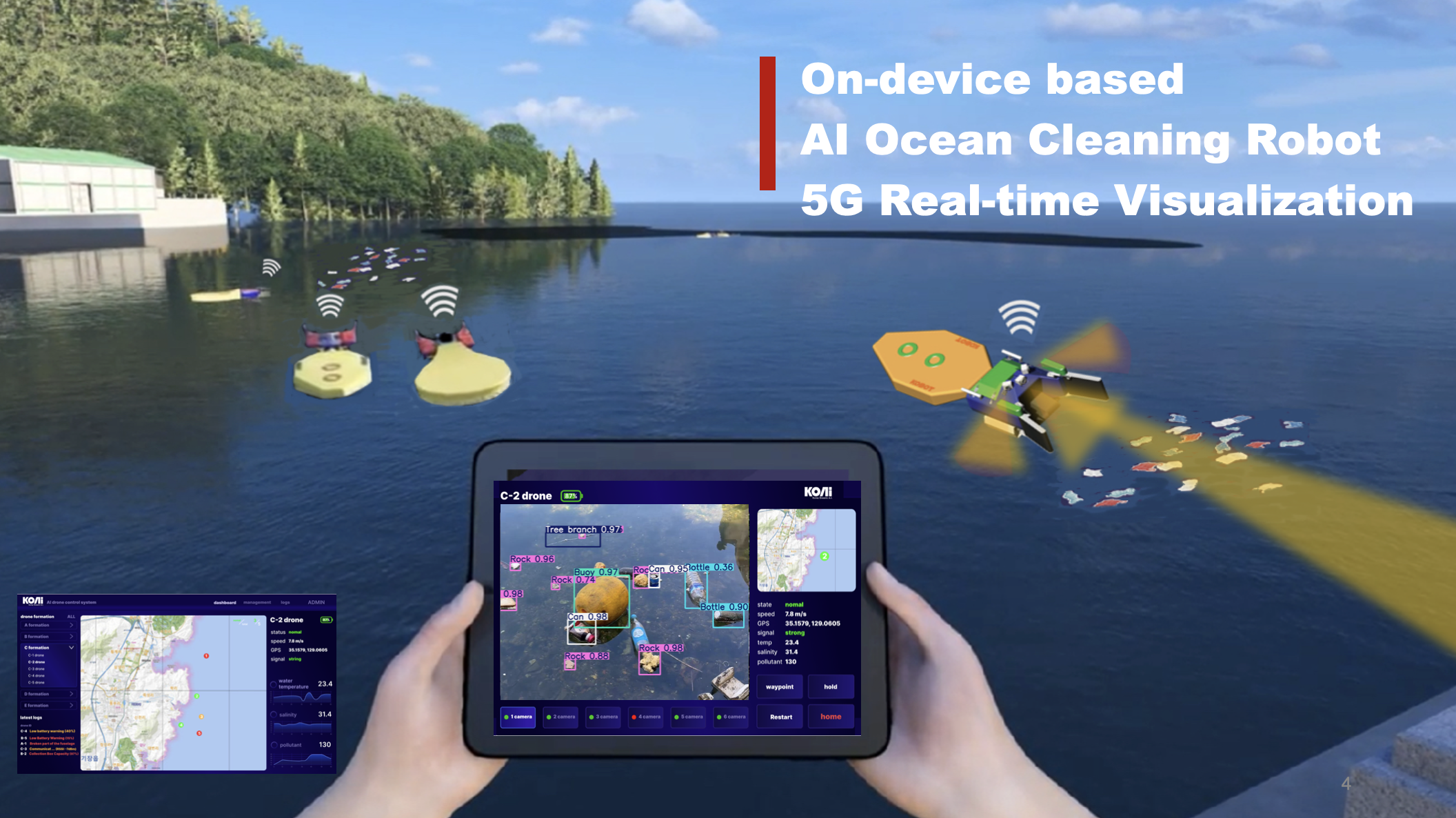First in our series featuring the deep-tech startups worth paying attention to.
KOAI is an ocean-tech company turning marine cleanup into an autonomous, data-driven operation. Founded by Tony Park (Park Kyung-Taek), KOAI was born after witnessing the devastating impact of oil spills and plastic waste on Korean coastlines.
“Manual cleanup was slow, unsafe, and costly,” Park recalls. “We envisioned autonomous robots that could detect and collect marine waste in real time.”
The result is KOBOT, a fully autonomous floating robot equipped with on-device AI, LiDAR sensors, and four vision cameras that allow it to detect and collect oil, plastic, and debris — even in rough weather — without relying on external networks or cloud connections. Unlike remote-controlled boats or skimmers, KOBOT “thinks” on its own, operating 24/7, learning from its environment, and sending environmental data via 5G.
It’s not just cleanup — it’s real-time environmental intelligence at sea.
From the Gulf to global ports
KOAI’s technology has already proven itself far beyond Korean shores.
Its robots have completed successful proofs of concept with UAE’s Abu Dhabi National Oil Company (ADNOC), the Singapore Maritime Port Authority and commercial port operator PSA, the The Dubai Electricity and Water Authority (DEWA), The Port Klang Authority (PKA) and Korea-U.S. joint drills. They have also been deployed in three live oil spill cleanups in Busan.
The company recently entered a cooperation agreement with Hyundai Corporation to standardize its robots for bunkering ships and is preparing pilots with TFG Marine involving up to 300 units.
Now, through the Innopolis Program, KOAI is looking west — to U.S. ports, marinas, and environmental agencies — to validate its technology under new coastal conditions and build partnerships that can scale both its impact and its investment base.
As part of its visit to the Bay Area, KOAI also engaged with local maritime authorities in San Francisco, including the Port of San Francisco, to explore potential collaborations for sustainable marine-cleanup pilots. One of the key priorities discussed in these exchanges was marine-life safety — and KOAI’s team emphasized that their system is designed to detect and avoid fish and other sea creatures, ensuring that operations remain fully eco-safe.
The bigger picture: from ESG to carbon credits
The U.S. is the world’s largest market for ESG-aligned ocean technologies, and KOAI is betting big on it.
In Park’s words: “We see the U.S. as a place where ocean cleanup can become outcome-based — where data, transparency, and carbon-credit integration can make sustainability measurable and scalable.”
Their robots don’t just remove pollutants; they collect valuable environmental data that informs smarter public policy and helps quantify carbon-reduction efforts — paving the way for a new circular, ESG-driven marine economy.
“Collaborating with AI or IoT companies can enhance our data analytics and predictive capabilities. Through robots that collect oil spills and garbage generated from all corners of the coast where access to existing ships is difficult, we not only remove marine pollutants directly, but also enable marine mobile CCTV (Closed Circuit Television) functions”.
A new wave of “Physical AI”
KOAI embraces the emerging Physical AI approach— intelligence that doesn’t just process data, but acts on it, autonomously (if you’re interested in getting more, download our latest “Physical AI: Shaping the Market of the New Possible” Report 2025 for free here).
This philosophy extends to their partnerships with Korea Southern Power (KOSPO) and Korea Marine Environment Management Corporation (KOEM), which provide national test beds for ongoing R&D. The company is now working on a $6.5M on-device AI demonstration project (2025–2026) to further commercialize its marine cleaning robot platform.
“It’s not just profit that drives us,” Park says. “It’s purpose — restoring the health of our oceans through technology.”
And they’re definitely eager to partner with local ports, marinas, environmental agencies and ESG-focused companies to pilot their technology across U.S. coasts.



